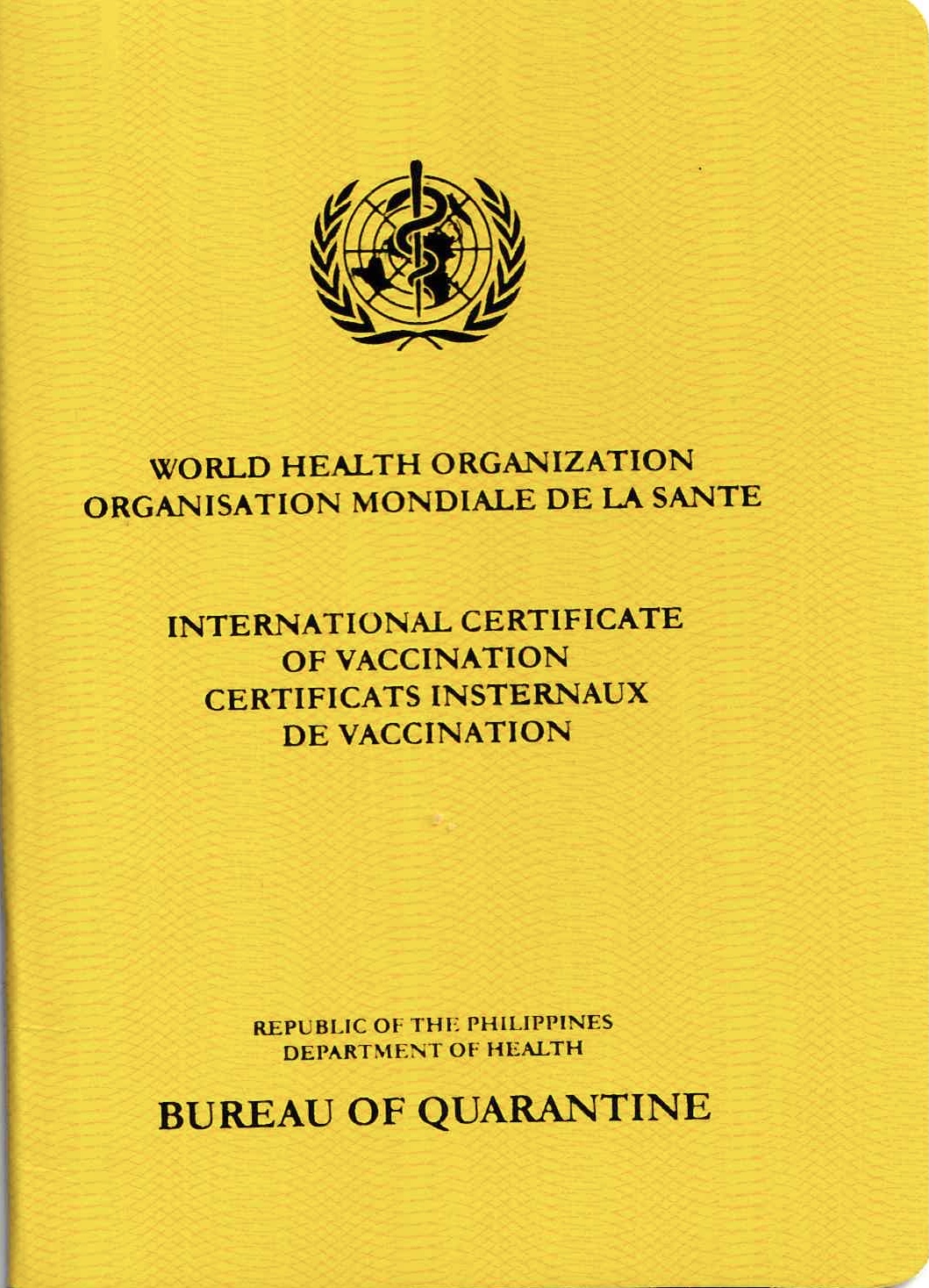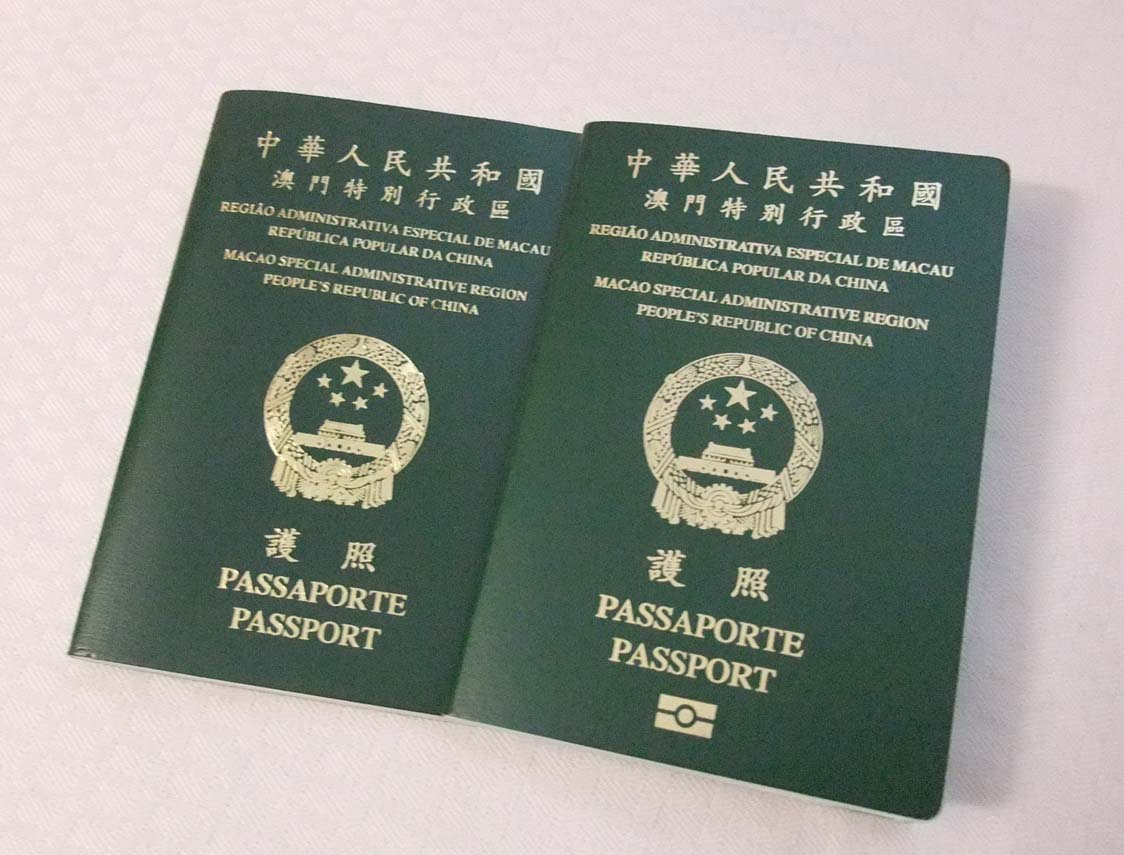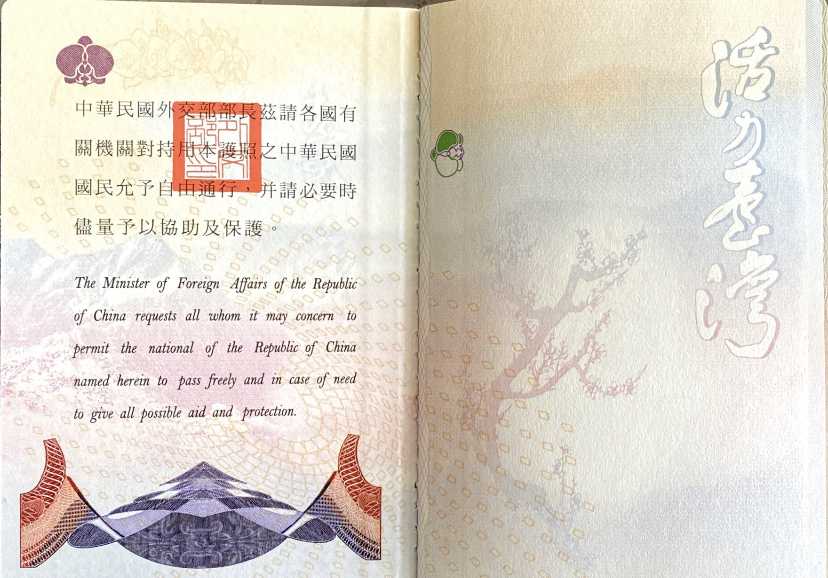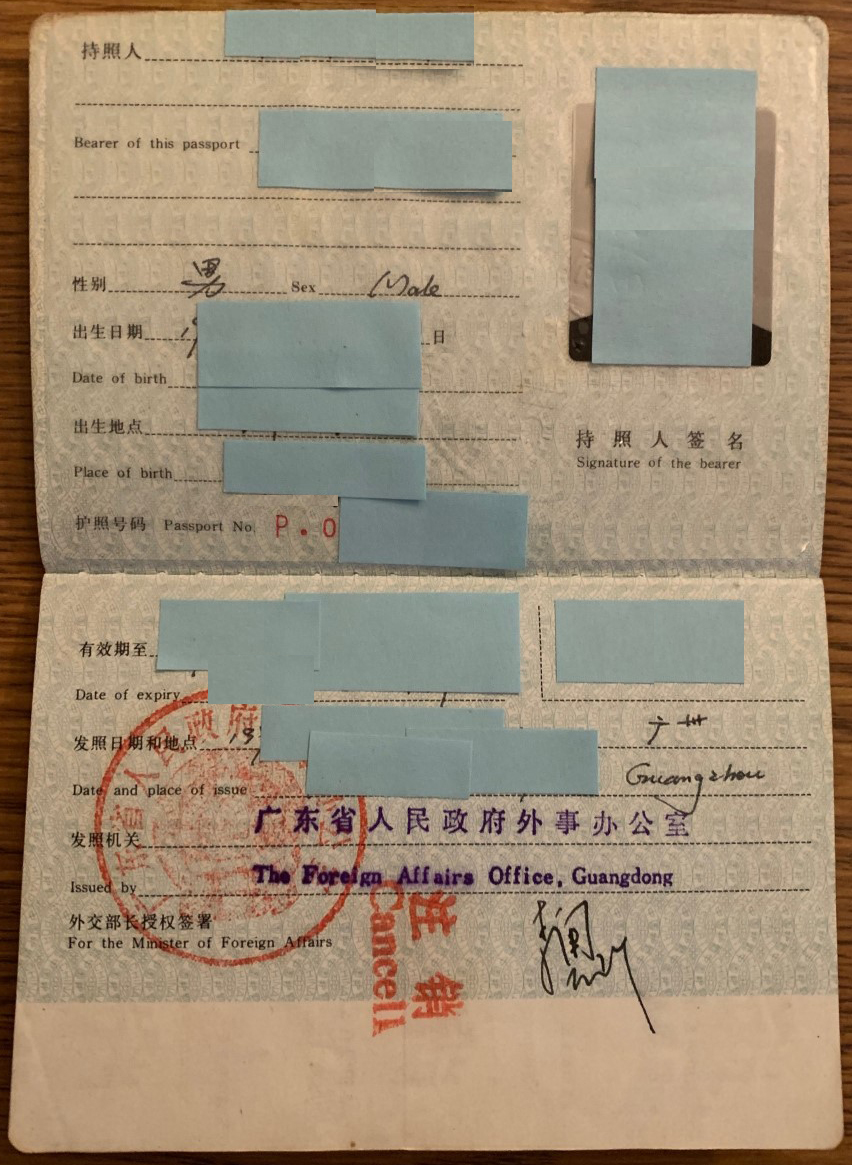|
Chinese Travel Document
The People's Republic of China Travel Document () is a type of travel document issued by Chinese embassies, consulates, and other foreign offices to Chinese citizens for their international travel to China and other countries. The bearer of the Travel Document is legally a Chinese citizen in accordance with the Nationality Law. Eligibility The People's Republic of China Travel Document is issued by the Chinese diplomatic representative offices, consular offices and other foreign offices to the following persons: * Residents of Hong Kong, Macao and Taiwan with Chinese citizenship who do not hold the ''Mainland Travel Permit for Hong Kong and Macau Residents'' or the '' Mainland Travel Permit for Taiwan Residents'' and need to return to the Mainland; * Taiwanese residents, with Chinese citizenship, who cannot apply for foreign visas with Taiwanese travel documents; * Chinese citizens who are too late to apply for passports due to emergencies. Chinese nationals born abroad with ... [...More Info...] [...Related Items...] OR: [Wikipedia] [Google] [Baidu] |
Travel Document
A travel document is an identity document issued by a government or international entity pursuant to international agreements to enable individuals to clear border control measures. Travel documents usually assure other governments that the bearer may return to the issuing country, and are often issued in booklet form to allow other governments to place Visa (document), visas as well as Passport stamp, entry and exit stamps into them. The most common travel document is a ''passport'', which usually gives the bearer more privileges like visa-free access to certain countries. While passports issued by governments are the most common variety of travel document, many states and international organisations issue other varieties of travel documents that allow the holder to travel internationally to countries that recognise the documents. For example, Statelessness, stateless persons are not normally issued a national passport, but may be able to obtain a ''refugee travel document'' or t ... [...More Info...] [...Related Items...] OR: [Wikipedia] [Google] [Baidu] |
Jus Soli
''Jus soli'' ( or , ), meaning 'right of soil', is the right of anyone born in the territory of a state to nationality or citizenship. ''Jus soli'' was part of the English common law, in contrast to ''jus sanguinis'' ('right of blood') associated with the French Civil Code of 1804. ''Jus soli'' is the predominant rule in the Americas; explanations for this geographical phenomenon include: the establishment of lenient laws by past European colonial powers to entice immigrants from the Old World and displace native populations in the New World, along with the emergence of successful wars of independence movements that widened the definition and granting of citizenship, as a prerequisite to the abolishment of slavery since the 19th century. There are 35 countries that provide citizenship unconditionally to anyone born within its national borders. Some countries outside the Americas with mixed systems extend ''jus soli'' citizenship on a limited basis to children who are not ... [...More Info...] [...Related Items...] OR: [Wikipedia] [Google] [Baidu] |
Taiwan Passport
The Republic of China (Taiwan) passport is the passport issued to nationals of the Republic of China (ROC, commonly known as Taiwan). The ROC passport is also generally referred to as a Taiwanese passport. In September 2020, approximately 60.87 percent of Taiwanese citizens possessed a valid passport. All passports published in Taiwan since 2008 have been biometric. The validity and international recognition of Taiwan passport are complicated due to the ongoing dispute over political status of Taiwan as well as the history of the Republic of China since the country had once controlled the territories of today's People's Republic of China (PRC) and Mongolia. In the past, all ethnic Chinese, Mongols, and Taiwanese were subjects to be eligible for the passport. However, constitutional reforms in the 1990s and 2000s greatly reduced the ease by which further grants of nationality were made to overseas Chinese and Mongolian, and restricted citizenship rights only to those with ho ... [...More Info...] [...Related Items...] OR: [Wikipedia] [Google] [Baidu] |
Travel Document
A travel document is an identity document issued by a government or international entity pursuant to international agreements to enable individuals to clear border control measures. Travel documents usually assure other governments that the bearer may return to the issuing country, and are often issued in booklet form to allow other governments to place Visa (document), visas as well as Passport stamp, entry and exit stamps into them. The most common travel document is a ''passport'', which usually gives the bearer more privileges like visa-free access to certain countries. While passports issued by governments are the most common variety of travel document, many states and international organisations issue other varieties of travel documents that allow the holder to travel internationally to countries that recognise the documents. For example, Statelessness, stateless persons are not normally issued a national passport, but may be able to obtain a ''refugee travel document'' or t ... [...More Info...] [...Related Items...] OR: [Wikipedia] [Google] [Baidu] |
Macao Special Administrative Region Passport
The Macao Special Administrative Region of the People's Republic of China passport (; ) is a passport issued to Chinese citizens who are permanent residents of the Chinese Special Administrative Region of Macau. In accordance with Macau Basic Law, since the handover of Macau on 20 December 1999, this passport has been issued by the Identification Services Bureau (under the Secretariat for Administration and Justice) of the government of Macau under the prerogative of the Central People's Government of the People's Republic of China. The official languages of Macau are Portuguese and Chinese; consequently, all the passport's text is in Traditional Chinese characters and Portuguese in addition to English. Historical background According to the nationality law of the People's Republic of China and the explanations given for some questions by the Standing Committee of the National People's Congress concerning the implementation of nationality law in Macau, any Macau permane ... [...More Info...] [...Related Items...] OR: [Wikipedia] [Google] [Baidu] |
Hong Kong Special Administrative Region Passport
The Hong Kong Special Administrative Region passport () is a passport issued to permanent residents of Hong Kong who also hold Chinese nationality law, Chinese citizenship. Note that: The passport is referred to both as the HKSAR Passport and the Hong Kong Special Administrative Region Passport. In accordance with the Hong Kong Basic Law, Basic Law of the Hong Kong Special Administrative Region, since the Handover of Hong Kong, handover in 1997, the passport has been issued by the Immigration Department (Hong Kong), Immigration Department of the Government of Hong Kong under the authorisation of the State Council of the People's Republic of China, Central People's Government of the People's Republic of China. As the official languages of Hong Kong are Chinese and English, the passport is printed bilingually in both Chinese (traditional Chinese characters, traditional characters) and English. HKSAR passports issued overseas via Chinese diplomatic missions abroad display a “ ... [...More Info...] [...Related Items...] OR: [Wikipedia] [Google] [Baidu] |
Taiwanese Passport
The Republic of China (Taiwan) passport is the passport issued to nationals of the Republic of China (ROC, commonly known as Taiwan). The ROC passport is also generally referred to as a Taiwanese passport. In September 2020, approximately 60.87 percent of Taiwanese citizens possessed a valid passport. All passports published in Taiwan since 2008 have been biometric. The validity and international recognition of Taiwan passport are complicated due to the ongoing dispute over political status of Taiwan as well as the history of the Republic of China since the country had once controlled the territories of today's People's Republic of China (PRC) and Mongolia. In the past, all ethnic Chinese, Mongols, and Taiwanese were subjects to be eligible for the passport. However, constitutional reforms in the 1990s and 2000s greatly reduced the ease by which further grants of nationality were made to overseas Chinese and Mongolian, and restricted citizenship rights only to those with hou ... [...More Info...] [...Related Items...] OR: [Wikipedia] [Google] [Baidu] |
Invasion Of Kuwait
The Iraqi invasion of Kuwait, codenamed Project 17, began on 2 August 1990 and marked the beginning of the Gulf War. After defeating the Kuwait, State of Kuwait on 4 August 1990, Ba'athist Iraq, Iraq went on to militarily occupy the country for the next seven months. The invasion was condemned internationally, and the United Nations Security Council (UNSC) adopted numerous resolutions urging Iraq to withdraw from Kuwaiti territory. The Iraqi military, however, continued to occupy Kuwait and defied all orders by the UNSC. After initially establishing the "Republic of Kuwait" as a puppet state, Iraq annexed the entire country on 28 August 1990; northern Kuwait became the Saddamiyat al-Mitla' District and was merged into the existing Basra Governorate, while southern Kuwait was carved out as the all-new Kuwait Governorate. By November 1990, the adoption of United Nations Security Council Resolution 678, UNSC Resolution 678 officially issued Iraq an ultimatum to withdraw uncondition ... [...More Info...] [...Related Items...] OR: [Wikipedia] [Google] [Baidu] |
Chinese Passport
The People's Republic of China passport (commonly referred to as the Chinese passport) is a passport issued to citizens of the People's Republic of China for the purpose of international travel, and entitles its bearer to the protection of China's consular officials overseas. On 1 July 2011, the Ministry of Foreign Affairs launched a trial issuance of e-passports for individuals conducting public affairs work overseas on behalf of the Chinese government. The face, fingerprints, and other biometric features of the passport holder are digitized and stored in pre-installed contactless smart chip, along with "the passport owner's name, sex and personal photo as well as the passport's term of validity and hedigital certificate of the chip". Ordinary biometric passports were introduced by the Ministry of Public Security on 15 May 2012. As of January 2015, all new passports issued by China are biometric e-passports, and non-biometric passports are no longer issued. In 2012, over 3 ... [...More Info...] [...Related Items...] OR: [Wikipedia] [Google] [Baidu] |
Nationality Law Of The People's Republic Of China
Chinese nationality law details the conditions by which a person holds nationality of the People's Republic of China (PRC). The primary law governing these requirements is the Nationality Law of the People's Republic of China, which came into force on September 10, 1980. Foreign nationals may naturalize if they are permanent residents in any part of China or they have immediate family members who are Chinese citizens. Residents of the Taiwan Area are also considered Chinese citizens, due to the PRC's extant claim over areas controlled by the Republic of China (ROC). Although mainland China, Hong Kong, and Macau are all administered by the PRC, Chinese citizens do not have automatic residence rights in all three jurisdictions; each territory maintains a separate immigration policy. Voting rights and freedom of movement are tied to the region in which a Chinese citizen is domiciled, determined by '' hukou'' in mainland China and right of abode in the two special administra ... [...More Info...] [...Related Items...] OR: [Wikipedia] [Google] [Baidu] |
Jus Soli
''Jus soli'' ( or , ), meaning 'right of soil', is the right of anyone born in the territory of a state to nationality or citizenship. ''Jus soli'' was part of the English common law, in contrast to ''jus sanguinis'' ('right of blood') associated with the French Civil Code of 1804. ''Jus soli'' is the predominant rule in the Americas; explanations for this geographical phenomenon include: the establishment of lenient laws by past European colonial powers to entice immigrants from the Old World and displace native populations in the New World, along with the emergence of successful wars of independence movements that widened the definition and granting of citizenship, as a prerequisite to the abolishment of slavery since the 19th century. There are 35 countries that provide citizenship unconditionally to anyone born within its national borders. Some countries outside the Americas with mixed systems extend ''jus soli'' citizenship on a limited basis to children who are not ... [...More Info...] [...Related Items...] OR: [Wikipedia] [Google] [Baidu] |





